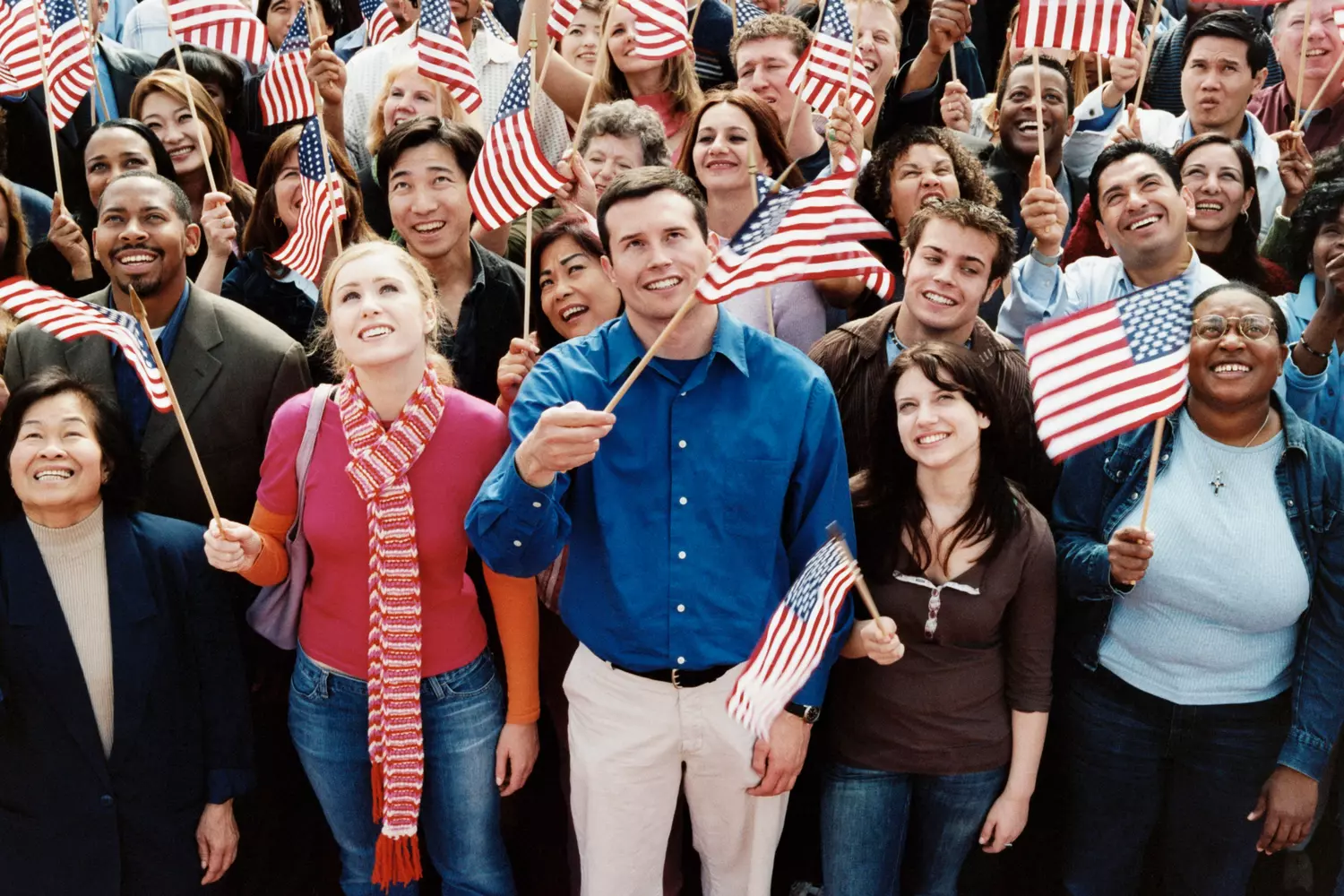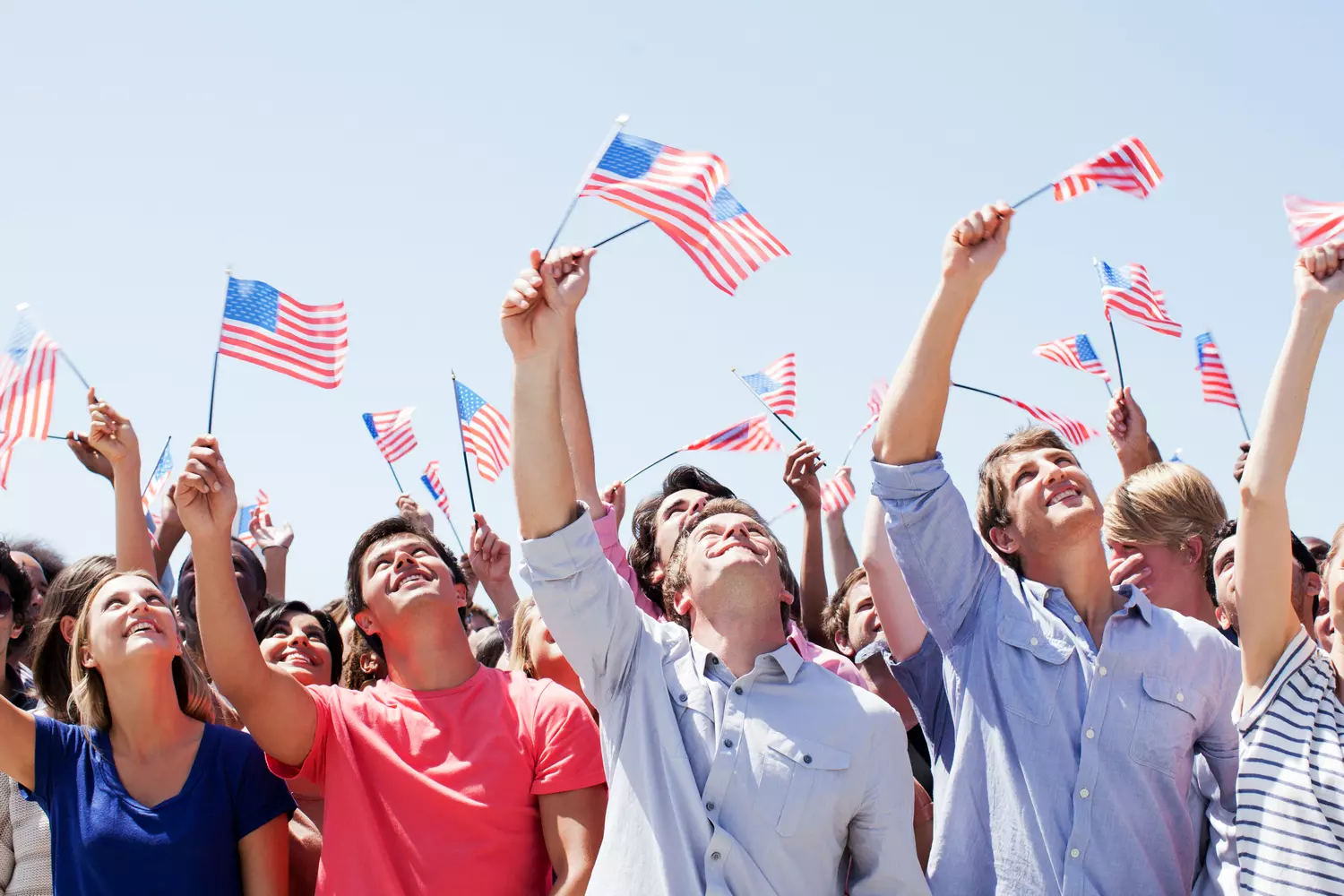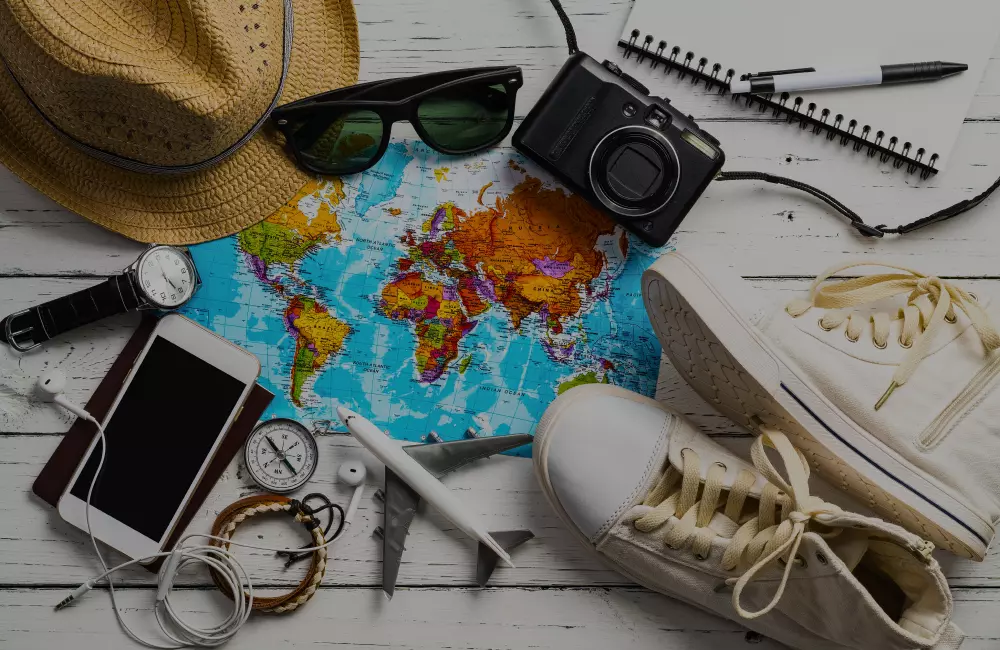How Are Americans Different from Russians?
There’s no shortage of articles on how Americans are unlike anyone else — how they’re hard to understand and why you shouldn’t take them too seriously. But here, we’ll look at the other side: why these traits might actually be a good thing. After all, they're doing something right — in many ways, better than most countries.
Sometimes, it’s hard enough to understand people living next door — let alone someone from a different continent. The American mentality is so different from the Russian one that even if you speak the same language, you might still be talking past each other. The culture of polite smiles, competitive backstabbing, and so-called “fake” friendliness — stereotypes like these are common, but often exaggerated by those with little firsthand experience.
At American Butler, we’ve spent years interacting with people across the U.S. — and now we’re sharing an insider's guide on how Americans make friends, whether you can trust them, and how to build genuine connections based on their mindset.
Forewarned is forearmed. Let’s look at a few key features of American mentality that might surprise those coming from Russia or former Soviet countries.

Smile for Everyone, Criticism for the Close Ones
This works almost the opposite way in Russia. People there aren’t used to smiling at strangers and tend to keep their joys to themselves (“happiness loves silence,” as the saying goes). But talking openly about how bad things are, how exhausted they feel after work, or what a jerk their daughter’s new boyfriend is — that’s easy. If a stranger smiles at you on the metro, your first instinct might be to check whether there’s ink on your face or if your hair is a mess.
Americans, on the other hand, rarely burden others with their actual problems. At most, they’ll grumble about the weather or something harmlessly irrational. But they’ll drown you in positivity — theirs, others’, and some general human optimism. They’ll tell you how great you look, how nice you smell, and how excellent your salad choice was at lunch. Sure, it might feel artificial at times — but does it really matter? You won’t walk away feeling drained. You’ll probably just smile back.
Being polite and friendly to everyone is a core part of American culture. Without it, the United States wouldn’t exist as it does. In a society built on dozens of cultures coexisting, this level of courtesy is non-negotiable. And in today’s world of constant stress and speed — where else can you expect that kind of warmth, just for showing up?

Is There Such a Thing as Friendship?
In one way or another, most people in America will show friendliness. But that doesn’t necessarily mean you should trust everyone right away. Good manners and polite behavior are often just cultural defaults.
Genuine movie-style friendship is unlikely in the following situations:
- 01. The person is providing you with a service;
- 02. You are business partners;
- 03. You’re neighbors (not always, but in 90% of cases);
- 04. The person depends on you financially or professionally;
- 05. You struck up a conversation in public and seemed to share similar views or hobbies.
In the U.S., casual social interaction is a big part of everyday life. People may be helpful or chatty without expecting any deeper relationship to follow. Given the country’s diverse origins and multicultural mix, many Americans maintain an appearance of friendliness simply to avoid unnecessary conflict or awkwardness.
How to Build Real Friendships with Americans
So how can you tell if someone truly wants to be friends and not just polite? A few signs can help:
- They seek out contact with you — people being merely courteous rarely go out of their way to keep in touch.
- You’re invited to hang out regularly — like going to a movie, grabbing drinks at a bar or cafe, jogging at the beach, or browsing local shops.
- They share personal matters or ask for advice — Americans tend to keep private things to themselves unless they genuinely trust someone and see them as part of their circle.
Of course, none of this guarantees a lasting friendship — every relationship is unique. But if the signs are there, it's worth giving it a chance.

Friendship Is One Thing — But the Police Will Still Show Up
In many post-Soviet cultures, the only people who might turn you in are complete strangers. A friend might help you steal apples from a neighbor’s backyard. A wife won’t tell anyone her husband tampered with the water meter. And mom? She’ll cover for you no matter what. Basically, if there’s no police around — the sky’s the limit.
In the U.S., you can be acquaintances, best friends, spouses, relatives, or even identical twins — it doesn’t matter. If you throw out trash the wrong way, skip paying for parking, or throw darts at your neighbor’s photo — someone will report you.
And not because everyone’s mean or nosy — but because freedom always comes with boundaries. You can look however you want, speak your mind freely, but once your actions interfere with public order or shared space, you're expected to be accountable. No exceptions, no excuses.

Why Do Americans Visit Each Other So Often?
Visiting neighbors or friends is common in the U.S., even if you don’t know them very well. In fact, being friendly with neighbors is considered good manners, and avoiding interaction is often seen as a sign of poor character or bad intentions.
It all comes down to the same principle: “Better a cardboard peace than a real war.” If you don’t build some kind of connection with your neighbors, they may start watching you closely and filing reports with the police at the sound of every sneeze — social surveillance never sleeps in the States.
Dropping by with pie and tea, then gossiping about your home’s decor or habits is completely normal. It actually helps reduce suspicion. So, if you value privacy, try not to display anything too personal in your home.
Inviting someone over is a sign of trust — in some cases, it’s practically an open invitation to stop by anytime without calling. But there are benefits: a friend who’s familiar with your home might happily watch your kids or pets while you’re away and treat your space with care.
The typical refreshment lineup includes cold drinks (juice, beer, lemonade), cookies, and light snacks. And when you’re the guest, don’t show up with overflowing bags of food or gifts — in the U.S., modesty is preferred, especially early in the friendship or when there’s a big financial gap. Overdoing it might make the host feel obligated and shift the dynamic toward polite formality.

Money Does Bring Happiness
In Russian culture, being a romantic dreamer striving for light and eternal values is seen as noble. Money, on the other hand, is often labeled as evil. Paying for kindness or service can feel awkward. Anything related to money is seen as fake or soulless — after all, you can’t take it with you when you die.
In America, being wealthy is equated with being smart, ambitious, and capable of taking responsibility. Yes, everything can be bought and sold — but what matters most is having the opportunity to earn and afford what you want. Wanting to be rich isn’t shameful — in fact, it’s considered a leadership trait.
Almost all of American history is built on stories of small and large businesses. Here, money truly rules the world — and not tipping isn’t just a cultural misstep, it’s an insult. You may agree or disagree with this mindset, but the fact that the U.S. economy is still alive and thriving speaks volumes: something about it clearly works.

Sincerity
Americans are human too — they crave understanding and support just like anyone else. But in a developed capitalist society, genuine sincerity is often in short supply, while keeping up appearances becomes second nature. This makes even simple acts of empathy and emotional honesty feel especially valuable.
In general, African Americans tend to show the most openness, sincerity, and compassion. They often overlook financial or social status and are willing to build emotional connections, particularly with kind, respectful people outside their community. Such friendships can last for years and bring real joy — though it’s wise to tread carefully at first.
White Americans, especially those descended from English pilgrims or Germans, may come across as more restrained or formal. They’re often family-oriented and may treat newcomers with polite indifference rather than warmth. Native American descendants might even go out of their way to ignore outsiders entirely. The dynamic shifts when it comes to Americans of Italian, French, or other European heritage — they're often more expressive and approachable.
Mexicans and other Spanish-speaking communities are typically lively and fun to be around. But when trouble strikes, don’t expect the same level of support unless you’re part of their inner circle. For them, loyalty starts at home — with family, neighbors, and close-knit ethnic networks.

"The American mindset is rooted in the principle of reflection: kindness and support rarely go unanswered. Sincerity here is not worn on the sleeve — but it is almost always met with sincerity in return."American Butler
Modesty Isn’t a Virtue Here
In many post-Soviet cultures, children are raised to “ask for less than they want.” Ambition is seen as impolite, even rude. A quiet girl is praised for being well-mannered. A reserved boy is considered wise and thoughtful. Standing out can feel dangerous — it draws attention, risk, and responsibility.
In contrast, every American child is taught to dream of being popular at school. Visibility, recognition, and self-promotion earn you peers’ respect, parental pride, and a sense of identity. School debates, student elections, and public presentations aren’t extracurricular — they’re essential life training.
For many kids from Russia or Eastern Europe, this kind of system seems brutal. Open competition, verbal sparring, constant comparison — it’s not for the faint-hearted. But in America, these challenges build resilience. They teach kids to fight for opportunities and prove their worth. It’s survival training for a hyper-competitive world — and yes, it often pays off.
We tend to believe that in order to succeed in America, you have to be a picture-perfect, smiling superstar. But in reality, all you need is to be yourself — and stop apologizing for it. Don’t be afraid to chase wealth, offer compliments, or stand your ground. At American Butler, we can prove it to you — we’ll design a tour where you’ll get to meet and interact with all kinds of Americans.

So, What Makes Americans Different?
Above all — their mindset of positivity and possibility. They don’t shy away from compliments, aren’t afraid to compete, and openly embrace their love for money and success. This doesn’t make them better or worse — it’s simply a different way of thinking. Instead of closing off, people here smile at the world, even when the day isn’t going great. Instead of waiting to be noticed, they speak up. Instead of thinking “as long as it’s not worse” — they go with “what if it works?” And often — it does.
The American mindset isn’t about fitting into a mold. It’s about the right to be yourself — to speak, to try, to fail, to get back up and speak again. It’s about freedom — in every form, from your appearance to your way of thinking.
Americans may seem overly polite or even shallow — and sometimes, they are. But behind the mask, you’ll often find people who genuinely believe that everyone deserves a chance. People who will offer a hand when you need it, even if you’re not close. They might not get your jokes or irony, but more often than not, they’ll accept you — with your story and your uniqueness.
American Butler can help you navigate these cultural nuances and find the place where you’ll feel most at ease — like home. Because home isn’t just walls — it’s where you feel understood.
Tips for Tourists and Immigrants in the USA
If you truly want to understand this country — don’t judge it by the news or internet memes. Come here, stay a while, talk to the locals, and you’ll see: America wears many faces. And behind every smile, there’s a person who might not become your best friend, but will likely give you a chance at mutual respect and a meaningful conversation.
What we’ve shared here are just observations — they’ll help you get your bearings at first. If you still have questions, American Butler will gladly guide you through the cultural nuances and offer personalized advice for any situation. And trust us — it’s really not that complicated, once you’re open to listening, understanding, and connecting. We can also help you choose a location that best suits your personality and lifestyle — a place that feels like home.



































